

|
ALLWOOD, Maxwell Brian (8 November 2012) Maxwell Brian ALLWOOD (8 November 2012, aged 77) Recruited as a Patrol Officer, Max arrived at Jackson's Strip in Port Moresby on a Douglas DC4, on 8 January 1954, around 6.00 am. Posted to Mendi in the Southern Highlands, and assigned to the station at Lake Kutubu, this was a very exciting time for a raw 18-year-old cadet. In 1956, Max moved to Wewak, a sub-district of the Sepik, and staffed Green River station. New nursing Sister Doris Hayes from Wewak Hospital became engaged to Max in the New Year 1958. Separation, during a year at the Australian School of Public Administration at Mosman New South Wales, ended when Dorrie and Max married in Townsville, on 23 August 1958. After an Australian Xmas, they left for a new posting to the New Britain sub-district of Rabaul in January 1959. Rosemary was born on 1 July 1959 into basic living conditions with wonderful sea views. Dorrie briefly returned to Townsville to have John Maxwell on 16 February 1961, while Max continued to work with the Tolai people, for whom he had great respect. He decided that gaining a qualification, to fit him for a position in a town where the children could get a proper education and medical attention, was necessary, and he began external study in law at the University of Queensland during 1962. A shortage of staff at Mt Hagen in the Western Highland District meant they reluctantly left Rabaul during June 1962, for a posting as ADO Local Government. Elizabeth was born at the Goroka Hospital on 13 July 1963. Life again changed in 1964 when Max returned to Wewak, in the Sepik District, as ADO Local Government. Dorrie spent much time on her own with the three children, and battled on, like many women in the Territory. Timothy Gerard was born on 14 November 1964, when Max was doing exams. Max took leave without pay in order to attend Queensland University full-time during 1965. The family settled into Brisbane suburban life but money was in short supply, despite part-time work during the year. After exams were over and passed, they received an ADO Local Government posting to Sohano on Bougainville, and left Australia for PNG early in 1966. The Sohano Club and a house overlooking the island, out to azure blue sea, were two pluses on a very small island. The Administration offered up to six months study leave for officers to complete a degree, which was available to Max if he passed five subjects in 1966; despite patrol work, four lively children, assignments, and no chance to cram at the last minute, he managed to pass the November examinations. Early in 1967, the family left Sohano for a further year of study at the University of Queensland, which Max loved. During that year, Dorrie became very ill with cancer and successfully recovered from surgery, while Max completed his examinations, and received a new posting to Mendi as ADC, which would revive their shattered finances. Now he had his degree, Max was keen to transfer to the Department of Law, and wrote to the Secretary of the Department, who agreed to this after House of Assembly elections were completed in April/May 1968. Dorrie settled the family and Max got on with general duties. Max became District Officer (Magistrate) in the Department of Law, Konedobu, Advisings Section, in Port Moresby. The family settled into their new house at Gordon's Estate, and the two eldest children enrolled at St Joseph's primary school in Boroko. Sent to Daru, the headquarters of Western District, to act as Coroner in relation to the murder of villagers near the Irian Jaya border, Max found clear evidence Indonesian soldiers had carried out the killings. He applied and was successful in having his articles reduced to 12 months, on the proviso that he work in the Conveyancing Section of the Department of Law for three months. Dorrie gave birth to Paul William at Port Moresby General Hospital on 27 May 1969. Max became a barrister and solicitor of the Supreme Court of Papua New Guinea on his 34th birthday, 24 June 1969, in the presence of Dorrie and five children, friends and colleagues. He became more involved in local government matters, and was appointed acting Chairman of the Promotion Appeals Board. His 1971 promotion to Senior Legal Officer (Local Government), housed in the Local Government Section of the Department of District Administration, was to affect the rest of his life. Had he not taken it, his life would have followed a different course. Then, a series of rapid changes took place. An early reorganisation of the Department of Law upgraded his position to Principal Legal Officer, as more and more councils formed, and more powers and functions devolved to the councils. In early 1972 Joe Lynch, the Legislative Draftsman, considered Max had potential in the field of legislative drafting, and offered him a position as Assistant Legislative Draftsman. In early 1973, the Legislative Drafting Section became a statutory authority by the name "Office of the Legislative Counsel" with Joe as First Legislative Counsel and Max as Second Legislative Counsel. After the ALP came to power, Gough Whitlam pushed for PNG independence, and self-government arrived in 1973. It did not mean a lot; there was now a different composition in the House of Assembly, and the country now had Michael Somare as Chief Minister. Joe Lynch's secondment to work on the Constitution for an independent Papua New Guinea was independent of the Office of Legislative Council, and took instructions from the newly formed Constitutional Commission. Consequently, Max became acting First Legislative Counsel, a level 3 Departmental Head position. Talk about rapid promotion, having gone from articled clerk in 1968 to departmental head in 1973. He was now responsible for drafting all bills as instructed by various departments of the Government. Being in the House during debates was necessary in case bill amendments required drafting. Normally, the House sat 2-5 pm and 8-10 pm when in session. Apart from the Bills, regulations, statutory instruments, and statutory notices also required drafting. Joe Lynch and the Constitutional Commission had set out the framework for the Constitution towards the end of 1973. This heavily affected the workload of the Office of Legislative Counsel, because the Constitution was to be purely an embodiment of the principles of the PNG Constitution, supplemented with organic laws containing the detail of constitutional matters such as elections, citizenship, judiciary, and defence. Max was to draft the organic laws, which are organs of the Constitution, and only able to be amended by a two-thirds majority in the House of Assembly. 1974 and 1975 were a blur of work with no time for home life. Joe Lynch became very ill in late 1974, resigning soon after, leaving Max to complete the drafting of sections, on instruction from the Constitutional Commission. Independence came on 16th September 1975. Max wrote, "The celebrations …were incredible. The people were hysterical with delight, even though for most, Independence brought absolutely no change in their lives. Psychologically, I suppose, the yoke of colonialism had been lifted." Many officers had taken advantage of a redundancy scheme and left the Territory before Independence, but Max stayed on for a while. He had a contract as First Legislative Counsel until December 1976, but Michael Somare asked him to stay on for at least another year, as a consultant on drafting and legislative matters, which involved travelling between Moresby, Canberra, Sydney, and Brisbane. In May 1977, Max suffered his first heart attack. It was time to settle down with the family in Brisbane, so he did not renew his contract when it expired, and with a heavy heart, he left PNG, just before Christmas 1977, after 24 years of enjoyable service. Many officers had taken advantage of a redundancy scheme and left the Territory before Independence, but Max stayed on for a while. He had a contract as First Legislative Counsel until December 1976, but Michael Somare asked him to stay on for at least another year, as a consultant on drafting and legislative matters, which involved travelling between Moresby, Canberra, Sydney, and Brisbane. In May 1977, Max suffered his first heart attack. It was time to settle down with the family in Brisbane, so he did not renew his contract when it expired, and with a heavy heart, he left PNG just before Christmas 1977, after 24 years of enjoyable service. In August 1978, Max obtained a position as an Assistant Legal Officer at the University of Queensland, which employed a number of ex-kiaps, before joining Brisbane City Council in 1980. Working in the Advising, Drafting and Town Planning Office with Neil Boge involved drafting a new Town Plan for Brisbane, and a Development Control Plan for the Spring Hill area. After taking voluntary redundancy in 1993, Max continued as a consultant until 1997, when he retired from work for good. Between 1999 and 2008, Max had six major operations and was fortunate to have "quality" time with his family, due to excellent medical treatment, exceptional support and comfort from his wife Dorrie, and a determined streak. He appreciated his final years in Maleny; after an interesting and fulfilling life, he enjoyed meeting PNG and Maleny friends, was dedicated to family, and died peacefully at home. Brett Collins
Frank FAULKNER (22 December 2012, aged 75) Frank first went to Papua New Guinea in 1957 as a cadet patrol officer. He was initially assigned to the Milne Bay District with later postings to the Madang, Sepik, and Central Districts. He finally left the service in 1975 with the rank of District Officer. In subsequent years Frank returned to Papua New Guinea and worked in community liaison roles for mining companies at Lihir and Porgera. He was also latterly employed as a camp manager by Oilmin Field Services Pty Ltd which serviced international petroleum exploration companies operating in the Southern Highlands and Gulf Provinces. In betwixt field assignments Frank liked to frequent the ski resorts in Colorado and Europe, or scuba dive in the Mediterranean and the Bahamas. In retirement Frank resided in Angeles City in the Philippines. Frank Faulkner was a genial, well informed and interesting person. He will be missed by his many friends. Harry Redmond
Bob lived in Papua New Guinea for 6 years, 3 of those as Head teacher with Laraine in Tapini. He devoted his time to teaching the local students and was fascinated with the country and its people. He was thought of so highly by his students that they still kept in touch many years after he returned to Australia and let him know of their successes. His deep interest in the country continued throughout his life and he wrote and published numerous professional journal articles and books on New Guinea's history and geography. Amongst his published works on Papua New Guinea, one worth highlighting is his book on education in Northern Province of Papua New Guinea which is in the National Library of Australia. He developed his own mini-library of books on Papua New Guinea and there are over 600 in his collection. Bob had a long and successful career at Barker College, Hornsby, NSW, teaching there for 32 years. Arriving at Barker in 1969, he taught History and English for 2 years before he started teaching Geography. He was appointed Senior School Tutor in 1977 and in 1991 he was appointed Head of Geography. The results obtained by Geography students over the years in the Higher School Certificate bear strong testimony both to Bob's own teaching and to his leadership of the Geography department. Throughout his time at Barker, Bob coached a variety of cricket, rugby and tennis teams. One of his star cricket players was Peter Taylor, who later became an eminent member of the Australian Cricket Team. Bob is survived by his wife Laraine, son, John and daughter, Karen. Laraine Grieve
Ex kiap, late of Algester Barry HOLLOWAY (16 January 2013) An obituary for Sir Barry Holloway is in the Library. Brian HOLLOWAY, CBE, QPM (23 January 2013, aged 85) An obituary for Brian Holloway is in the Library.
John was born on 12 June 1928 in Brisbane, the son of Harold and Elsie Lee Jameson. His father, a garage proprietor, died 13 months after John was born. In 1933, his mother married Harry Newberry Casey, who had a property at Macalister in the Darling Downs. John attended Toowoomba Grammar School where he was dux in his senior year. He studied medicine at the University of Queensland, graduating in medicine in December 1950, and did his residency at the Brisbane General Hospital. He served as a Captain in the Australian Military Forces at Taurama Barracks from 17 December 1951 to 14 May 1952. He met Lesley Nothling, an air hostess, while he was at university and they married at St John's Cathedral in Brisbane on 13 December 1952. John returned to PNG with PhD in January 1953 and was the first Australian graduate to come to PNG after the European refugee invasion of 1950. In his first year he was attached to the Minj malaria research unit. In February 1954 he became DMO at Goroka where Louise was born. In 1955 he studied the D T M & H in Sydney and became a Regional MO, first at Lae then Moresby from 1965. In 1967 he graduated as MPH at the University of Michigan and was admitted as a member of Delta Omega. He was a Foundation Fellow of the Royal Australian College of Medical Administrators. His administrative competence saw him promoted to Assistant Director of Preventative Medicine in 1969 through to his retirement 1975 where he provided valuable advice over the complex years through to independence. John was an able compassionate doctor and an intelligent quiet achiever who listed no publications but worked tirelessly to improve the health of the people in the areas he served. He left just prior to independence and continued to provide health services for those in real need in the Aboriginal Health section of the Queensland Department of Health where his experience in PNG was extremely useful. After his retirement, he continued to grow orchids, and took up bridge which he thoroughly enjoyed. Lesley died in October 2005. John is survived by his daughter Louise and three granddaughters. Roy Scragg
John was Tom Leahy's younger brother. He was in Goroka for many years in coffee and ended up working for Niuminco. He bought Duna from the Kingsford Smiths.
Jim died on 6 January in a house fire in Canberra. Police said there were no suspicious circumstances. During his time in Port Moresby, Jim was employed by the then Department of Civil Aviation and was a member of the Papua New Guinea Volunteer Rifles. He was a member of the Canberra Rifle Club for many years and, as recently as last year, he was winning competition events. Don Hook
Don, or Rangarere Don, as he was known in Rabaul, was born in Namanula hospital to Lottie and Jock Maclean, of Rangarere and Old Massawa plantations on the Bainings coast of New Britain. He spent his early childhood on the plantation, doing correspondence lessons from the Queensland Correspondence School and in 1937 was sent to Brisbane Boys College in Brisbane to complete his secondary education. This was not a happy time for him, being separated from his family and only seeing them once a year in the Christmas holidays. In December 1941 after Pearl Harbour, and while he was home for the holidays, the administration decided to evacuate the white women and children from Rabaul. Don, his mother and sister were sent to Brisbane. Because his father was missing in New Guinea, Don had to get a job to support his mother and sister so he worked for Mars Machine Tool Company until he was old enough to join the Army in late 1943. Don served in Bougainville in 1944 and 1945. As he was very fluent in pidgin, at the end of the war he was transferred to Rabaul to act as an interpreter for the Allied Occupation Force. He took his discharge in Rabaul and joined his father in clearing and rehabilitating their plantations after 5 years of neglect and war damage. Don had great rapport with the local people and was instrumental in forming the Lassul Local Government council, for which he received, in September 2000, a Recognition Award for contribution in services to the development of Papua New Guinea from Sir Silas Atopare, GCMG, KStJ. In 1972 he and his family moved to Brisbane. While driving a taxi at night he graduated as Bachelor of Arts in Asian Studies in 1980. In 1984 he completed a Master of Social Science degree at UQ after which he was employed by the ATSIC Educational Unit at the University of Queensland. In 2008 his deteriorating health forced him to retire from the tutoring which he loved. Don is survived by Judith, his wife, four of his children and their spouses, eight grandchildren and four great-grandchildren and will be dearly missed by his family and many friends. Judi Maclean
Kevin was an ex-kiap. He received his OBE for services to PNG Rugby League. See the extract of a tribute from Post-Courier of 29 January 2013 in the Library.
Vince was born at Killarney, Queensland, on 24 December 1926 and joined the Queensland Police Force in June 1943. He was sworn in on 9 April 1945 (Reg. No 4215) and after commencing at Roma Street, served at Augathella, in the Charleville Police District. He resigned in April 1948 to join the Royal Papuan Constabulary and New Guinea Police Force as an Assistant Sub Inspector on 28 May 1948. He served with the Constabulary at Port Moresby, Lae and Wau. He resigned in May 1957 to operate a poultry farm at 14 Mile, Sogeri, in partnership with Jim Dutton. He served in the Papua New Guinea Volunteer Rifles. After the end of 1981 he sold his PNG property and moved to Queensland where he commenced his own business as a Consultant to investment corporations. Earl Sanders
He had wanted to do Medicine, but had to have a job at the same time so he did Pharmacy. John and Allison were married at 21 and 22, and opened their first pharmacy at Long Jetty, NSW, with a bank loan of £4000. They struggled and "went without" to pay the loan back in eighteen months to the astonishment of the local manager. Both John and Allison maintained a keen interest in the Pharmacy Industry and never did retire! Phillips Pharmacy has now been in Gosford for 48 years. In later years, although not dispensing, John was regularly in the pharmacy, faxing lengthy letters he would write after midnight, to anyone he thought could benefit from his wisdom, or the odd 2 page appeal over a speeding fine. John, even in his younger days, was fiercely patriotic and a budding philanthropist. John felt the need to show the Australian people's appreciation for the help and sacrifices of the Fuzzy Wuzzy Angels during the Kokoda campaign of 1942-43. John wanted to establish a hospital in the Kokoda area and with Allison raised $4,000. The hospital would cost $3 million. Undaunted John sought donations from local business, from large corporations and state governments as well as from the RSL. Initially when he sought funds from the Keating federal government he was turned down. John in his dogged manner persisted and eventually the Prime Minister thought this would be great PR for the Labor government and gave John a grant of $3 million for the hospital. John went to New Guinea no less the 38 times over 35 years representing the Australian people, Rotary International and Gosford Rotary in particular. Besides the hospital he built 11 Aid Posts so that sick people there would not have to walk more than two hours to get medical treatment. Oliver the dog was a special training partner for John's (2nd) trip to walk the Kokoda track, aged 70. Oliver was walked up every hill so John would be fit enough. Two years ago he had 30-year-olds panting up the hills of PNG trying to keep up with him. John was also involved in The Royal Australian Army Medical Corps, Chamber of Commerce, Battle for Australia and the Kokoda Memorial Project. His love of land and farming began in his youth at Northbridge when on weekends he would ride his bike from Northbridge to Wilberforce to help on his uncle's farm. In 1968 he purchased 400 acres at Warnervale. Later, the Department of Main Roads resumed the Warnervale farm with the building of the F3 and in 1978 4000 acres were bought between Coonamble and Coonabarabran, the property called Bouwick. John taught his family much: he fixed and repaired rather than threw things out. He differentiated between "wants" and "needs". In 1974 John took his family to South East Asia for a trip of 7 months. His organising of and involvement in Australia Day celebrations spanned over 20 years. It was also his interest in and passion for remembrance of the Battle for Australia which was a highlight of the Gosford Rotary calendar. For years John would organise a team of Fuzzy Wuzzy Angels to be present at the annual talk. He stressed that it was important for all Australians never to forget our history. John is survived by Allison, David, Debbie, Suzette, Anne and families With thanks to David Phillips and Jim Katrakilis, President Gosford Rotary Club, and Rotary International newsletter Volume 62 Issue 15 of October 2012.
He showed promise as a scholar in the early years of his education. He attended North Newtown Intermediate High School (1932-34) where he excelled in mathematics, science, English, the humanities, and languages. Life in the Great Depression was hard, and like many other families at that time his parents could not afford his further education. He was fortunate enough to gain employment immediately upon leaving school at the Australian Gaslight Company until the outbreak of the Second World War in 1939. He enlisted as a private in the Australian Infantry Forces in 1939 and saw active service in Papua New Guinea where he experienced first-hand the bombing of Port Moresby by the Japanese. He rose to the rank of sergeant, and was later commissioned in 1944 with rank of 2nd Lieutenant. At the conclusion of his officers training at Duntroon he was posted to a civil affairs unit in Borneo. The war was coming to end and the Australian Government needed officers of his calibre to assist in the reconstruction of the Asia/Pacific region. During his time at Borneo he met Mary Alice Kathleen Fleming who at the time was serving as a nurse in the Voluntary Aid Detachment with the 6th Australian General Hospital. They fell in love and got married on 10 January 1946. They then moved to Territory of Papua and New Guinea as it was known then, and spent the next 30 years of their lives there. At the conclusion of the Pacific War on 15 August 1945, he briefly returned to Sydney before deciding to take the opportunity to work with the Australian colonial administration in the Territory of Papua and New Guinea. He enrolled in the 1st Long Course at the Australian School of Pacific Administration (ASOPA) where he was instructed by a talented group of academics such as Marie Reay, Camilla Wedgewood, Harold Stewart, and James McCauley. He was awarded a Diploma in 1951 and then posted to Mt Hagen as a patrol officer. Being in the field staff meant regular postings throughout the Territory: Maprik, Mt Hagen, Bogia, Wewak, Manus Island, Rabaul, and finally Port Moresby. One of their first homes was made of thatched material. Such was life in the out stations, especially when one was a patrol officer. He would be away for weeks working with police, "luluais" and "tultuls" to collect census data, provide medical support to local villages, and keep the peace. While stationed at Lorengau, Manus Island, as an Assistant District Officer, he enrolled in a Bachelor of Laws at the University of Queensland. From 1956-1959 he studied for his degree externally. He was granted 2 years' leave without pay to complete his studies. He boarded at Cromwell College, an experience he enjoyed immensely. He graduated with an LLB in 1961. He left the field staff after gaining his law degree, and joined Crown Law in Port Moresby in 1962. After 3 years, he joined a law firm and practiced as a barrister and solicitor, before re-joining Crown Law just before independence. During this time his wife Mary worked as a Welfare Officer. They left Papua New Guinea in 1975. He was then appointed Principal Legal Officer in the Attorney General's Department in Darwin in 1976, eventually becoming Assistant Crown Law Officer. Two years he and Mary then came to live in Brisbane where they built a home at Sunnybank in Queensland. Upon his retirement in 1978, he set about further study as a part time student at Griffith University where his studied for a Bachelor of Arts, graduating in 1989. He then enrolled in a Master of Arts and completed that in 1992. Apart from studying at university, Mr Reitano became heavily involved in volunteering in a variety of organizations that focussed around education, culture, and health. He strongly believed in helping others. He was an active, community minded citizen. One of his great thrills as "audio-visual literacy reader" at the University of Queensland was to assist a sight-impaired law student to graduate in law with first class honours. There were two organisations he was regularly involved with. The first was the United Service Club of which he was a member for 32 years. He and members of the family regularly patronised the club. He was also involved the Sunnybank RSL for many years. In January 2010, he and Mrs Reitano moved into RSL Care at Cazna Gardens. He kept up with current affairs and read widely. He had a large collection of books on Papua New Guinea. He continued in his role of Justice of Peace until 6 months before he died. Mr Reitano is survived by his wife Mary; Sons Paul and Jeffrey; daughters-in-law, Danielle, Janelle and Kate; grandchildren Emma, Noel, Odette, and Peter; great grandchildren Ashley, Michael, Nikolas, Nicola, Daniel, and Gabrielle. Paul Reitano No further details at this stage:
|
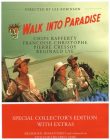
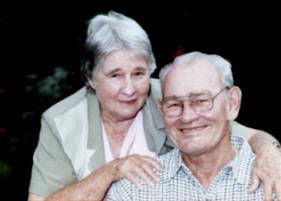
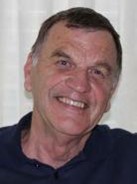 After high school he studied accountancy and worked for a short time as a shipping clerk at Birt & Company. After deciding that bean-counting was not for him, he thought it would be exciting to teach in Papua New Guinea and enrolled at the Australian School of Pacific Administration at Mosman, where he graduated in 1962. His first teaching appointment was in Port Moresby, and to further his education he enrolled part-time at the University of Queensland and studied by correspondence. One year later he moved to Hula: there were no roads, no electricity and the only way there and back was by double-hulled canoe. He studied by the light of a kerosene lamp. His love of education led him to further study, and in May 1979 he graduated with another degree from Macquarie University, a Master of Arts majoring in Education.
After high school he studied accountancy and worked for a short time as a shipping clerk at Birt & Company. After deciding that bean-counting was not for him, he thought it would be exciting to teach in Papua New Guinea and enrolled at the Australian School of Pacific Administration at Mosman, where he graduated in 1962. His first teaching appointment was in Port Moresby, and to further his education he enrolled part-time at the University of Queensland and studied by correspondence. One year later he moved to Hula: there were no roads, no electricity and the only way there and back was by double-hulled canoe. He studied by the light of a kerosene lamp. His love of education led him to further study, and in May 1979 he graduated with another degree from Macquarie University, a Master of Arts majoring in Education.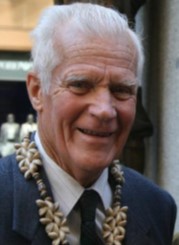 Born in Northbridge, John enjoyed attending North Sydney Boys High. He was always proud of the Scottish connection in his heritage and his first date with my Mother was to a Scottish dance when she was 16 and he was 17.
Born in Northbridge, John enjoyed attending North Sydney Boys High. He was always proud of the Scottish connection in his heritage and his first date with my Mother was to a Scottish dance when she was 16 and he was 17.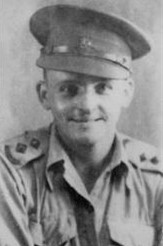 Lieutenant NX129453 AIF, Assistant District Officer, Lawyer, Community worker, Justice of the Peace, and lifelong learner.
Born 26 May 1919, Sydney, died Brisbane, Australia.
Lieutenant NX129453 AIF, Assistant District Officer, Lawyer, Community worker, Justice of the Peace, and lifelong learner.
Born 26 May 1919, Sydney, died Brisbane, Australia.